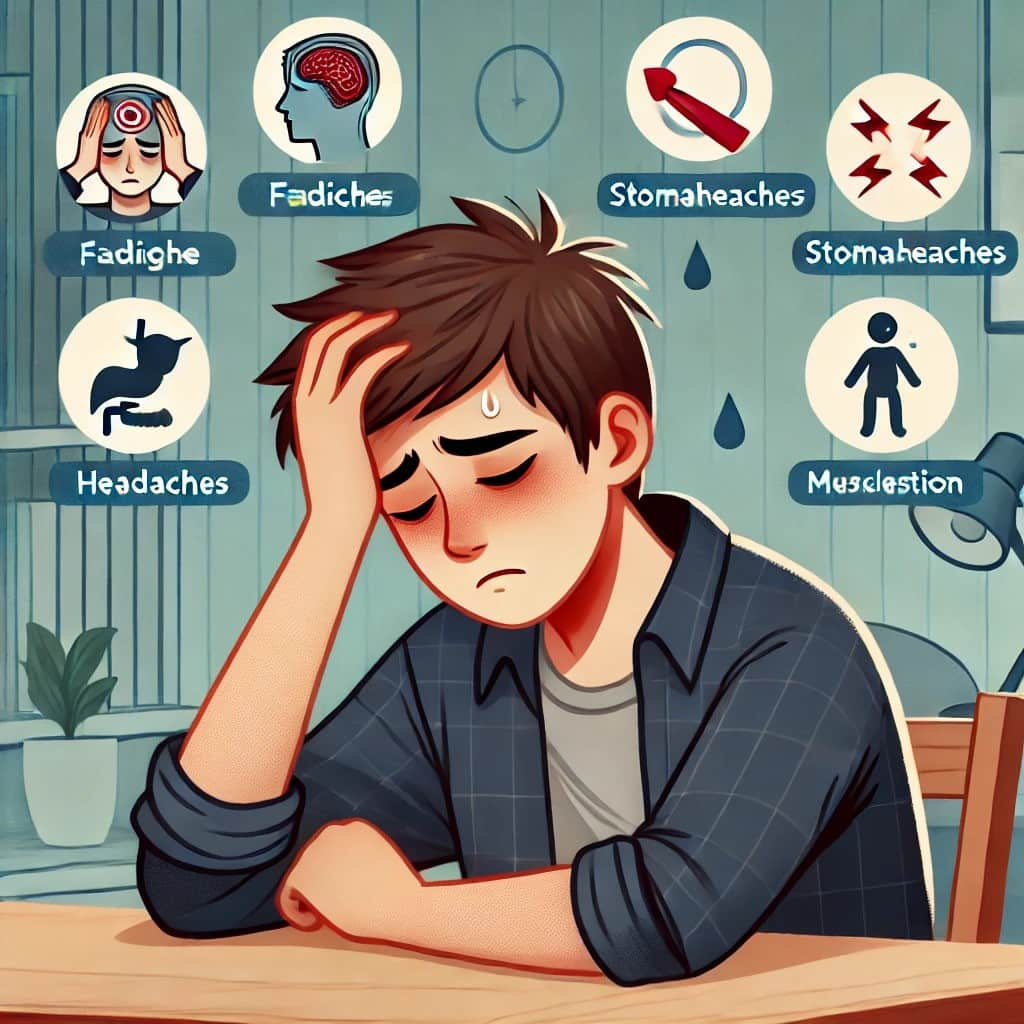How to Help a Friend Who is Struggling Emotionally?
Everyone goes through tough times, but when you notice someone struggling emotionally, it can be challenging to know how to offer support. Whether it’s a close friend, a family member, or a colleague, your help can make a significant difference. Emotional struggles are not gender-specific; both men and women can face these challenges.
Understanding how to approach and assist someone in distress can foster stronger, healthier relationships and contribute positively to their mental well-being. In this blog, we will explore practical steps you can take to support someone who is struggling emotionally, regardless of their gender.
Signs Your Friend is Struggling Emotionally
Recognizing when a friend is emotionally drained is crucial in providing timely support. Emotional struggles often manifest in various ways, and being aware of these signs can help you step in and offer assistance. Here are some common indicators that your friend might be struggling emotionally:
Withdrawal from Social Activities: If your friend is avoiding social gatherings or consistently canceling plans, they might be feeling emotionally drained.
Changes in Mood: Noticeable shifts in mood, such as increased irritability, sadness, or anxiety, can be signs of emotional distress.
Lack of Interest in Hobbies: Losing interest in activities they once enjoyed is a common indicator of someone struggling emotionally.
Changes in Sleeping or Eating Patterns: Drastic changes in sleep or appetite, whether it’s sleeping too much or too little, eating more or less, can signal emotional difficulties.
Expressing Feelings of Hopelessness: If your friend talks about feeling hopeless, worthless, or overwhelmed, they are likely experiencing significant emotional strain.
What are the Physical Signs?

Fatigue: Persistent tiredness and lack of energy, even after adequate rest, can be a sign of emotional exhaustion.
Appetite Changes: Significant weight loss or gain due to changes in eating habits often accompanies emotional distress.
Headaches and Migraines: Frequent headaches or migraines can be linked to emotional stress and tension.
Muscle Tension and Pain: Unexplained aches and pains, particularly in the neck, shoulders, and back, are common physical signs of stress.
Digestive Issues: Stomachaches, nausea, and other gastrointestinal problems can be related to emotional turmoil.
Weakened Immune System: Frequent illnesses, such as colds and infections, can result from the body’s response to prolonged emotional stress.
What Can You Do If You Think a Friend is Struggling But They Don’t Want to Talk about It?
When a friend seems mentally tired and emotionally drained but is unwilling to talk about their struggles, it can be challenging to know how to help. In such situations, it’s important to respect their privacy while still showing your support. Start by being present and offering your companionship without pressuring them to open up.
Simple acts like spending time together, engaging in light activities, or just being a good listener when they are ready to talk can make a big difference. You can also gently encourage them to engage in self-care practices, such as regular exercise, healthy eating, and sufficient rest.
Let them know you’re available whenever they’re ready to share and that seeking professional help is a valid option if their emotional strain continues. By providing a supportive and non-judgmental environment, you help create a space where your friend feels safe to express their feelings eventually.
What should a Responsible and Loyal Friend Do?
Being a responsible and loyal friend involves recognizing when someone is struggling emotionally and taking proactive steps to offer support. Emotional friend support goes beyond mere words; it requires actions that show care, understanding, and dedication.
By being attentive, patient, and compassionate, you can significantly impact your friend’s emotional well-being. Here are 11 effective ways to help a friend who is struggling emotionally.
1. Be Present and Listen Actively
Sometimes, the best way to support an emotional friend is simply to be there. Offer a listening ear without interrupting or giving unsolicited advice. Let them express their feelings freely, knowing they are heard and understood.
2. Show Empathy and Understanding
Empathy involves putting yourself in your friend’s shoes and understanding their feelings. Validate their emotions and let them know it’s okay to feel the way they do.
3. Offer Practical Help
Practical help can alleviate some of the burdens they might be facing. Whether it’s helping with chores, running errands, or providing meals, these acts of kindness can make a big difference.
4. Encourage Professional Help
Gently suggest seeking professional help if their struggles seem overwhelming. Therapists and counselors are trained to help people navigate emotional difficulties effectively.
5. Respect Their Space and Privacy
Respect their need for space if they request it. Sometimes, people need time alone to process their emotions before they are ready to talk.
6. Engage in Activities Together
Invite them to join you in activities that they usually enjoy. Physical activities, hobbies, or simply taking a walk can help lift their spirits.
7. Stay in Touch Regularly
Regular check-ins can show that you care and are thinking about them. A simple text, call, or visit can mean a lot.
8. Avoid Judgment and Criticism
Be mindful of your words and avoid making judgments or criticisms. Offering a non-judgmental space is crucial for their comfort.
9. Educate Yourself
Learn about the signs and symptoms of emotional struggles. The more you know, the better you can understand and support your friend.
10. Be Patient
Emotional recovery takes time. Be patient with their progress and avoid pressuring them to “get over it” quickly.
11. Take Care of Yourself
Supporting a friend emotionally can be draining. Make sure you also take care of your own mental and emotional health to be the best support you can be.
What Not to Say to Someone Who is Struggling Emotionally?
When someone is struggling emotionally, the words you choose can have a profound impact on their mental state. It’s essential to approach conversations with sensitivity and avoid saying things that might unintentionally harm or invalidate their feelings.
“Just get over it.” This dismisses their feelings and implies that overcoming their struggles is a simple task.
“It could be worse.” While intended to provide perspective, this can make them feel guilty for their emotions.
“Everyone feels that way sometimes.” This can minimize their unique experience and make them feel misunderstood.
“You should be grateful for what you have.” Gratitude is important, but this phrase can come off as dismissive of their current emotional pain.
“You’re overreacting.” This invalidates their feelings and suggests that their emotions are not justified.
“Others have it worse than you.” Comparing struggles can lead to feelings of inadequacy and further emotional distress.
“Snap out of it.” Emotional struggles are not something that can be turned off at will; this phrase shows a lack of empathy.
“It’s all in your head.” This undermines their experience and can make them feel isolated.
“You’ll be fine.” While meant to be reassuring, it can come across as dismissive of their current pain.
“Why are you making such a big deal out of this?” This can make them feel their emotions are not valid or important.
Summary
Learning how to help a friend who is struggling emotionally can make a significant difference in their life. By being present, showing empathy, and offering practical support, you can provide a much-needed lifeline during their challenging times. Remember, your role is not to fix their problems but to offer a compassionate and understanding presence.
With patience, kindness, and the right approach, you can help your friend navigate their emotional struggles and reinforce the strength of your bond. Being there for someone in need is one of the most powerful expressions of friendship and humanity.















